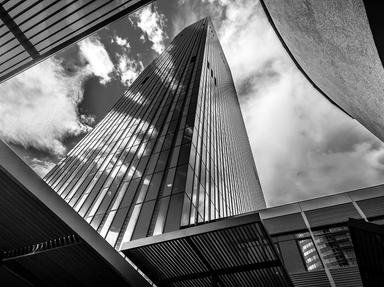Quiz Answer Key and Fun Facts
1. This young leader took over office in 2001, when his father Laurent, who had recently taken power, was assassinated. He surprised his large, war torn country by making serious efforts to bring about peace, including the establishment of an interim government in 2003, with representatives of several rebel factions.
2. A celebrated crusader against corruption, this man became his country's third post-independence president in 2002. The second was Daniel Arap Moi, who became president in 1978.
3. This leader won an election against Unita leader Jonas Savimbi in 1992, but Savimbi rejected the results and resumed fighting. When Savimbi died, prospects for peace began to appear more hopeful.
4. The faked signature of this leader is on one of the forged papers which President George W. Bush cited in his 2003 State of the Union Address as evidence that Saddam Hussein had purchased uranium for nuclear weapons.
5. This leader toppled Milton Obote after his party lost elections he claimed were rigged. After that he stood for and won elections. His country's human rights record improved greatly after he took power, but he has been criticized for backing rebels in the Democratic Republic of Congo.
6. This leader has been criticized for questioning the link between HIV and AIDS, claiming that AIDS was the product of poverty. He was elected in 1999, but was considered by some to have been a de facto leader of the country since its historical transformation in 1994.
7. This leader was thought to be a hand-picked puppet of his predecessor, Chiluba. However, he dismissed Chiluba's cabinet upon election and pressed for the lifting of immunity from Chiluba so that he could be prosecuted for corruption crimes allegedly committed while in office.
8. This Hutu President succeeded Tutsi Pierre Buyoya in 2003, under a transitional government established in 2001. He is the country's fourth Hutu President: if he is able to stay in office, he will become the first Hutu not to be removed from office through a military coup.
9. Although this leader came into power through a coup, he gradually transitioned his small, French-speaking country to civilian rule and stepped down in 1991 when he lost elections.
10. This leader was appointed to power by traditional chiefs, creating the hope that stability might arise in a country wracked with ethnic strife and civil war. He worked in government during the Barre regime before its collapse, and returned from exile to work with grassroots groups on peace.
11. A former Marxist-Leninist, this leader has more recently become a proponent of the free market and parliamentary democracy. He was appointed head of the transitional government when Mengistu was overthrown, and became Prime Minister in 1995.
12. After forty years of rule by the same party without a single coup d'etat, socialist President Abdou Diouf peacefully left office when this leader was elected in 2000. The new president embraced market liberalisation, but along with several other African leaders has criticised International Financial Institutions for hypocrisy, saying they allow Western countries to undermine domestic agricultural markets with subsidized exports while punishing African governments for subsidizing their own farmers.
13. This leader came into power through a military coup in 1989, in a country with the longest running civil war in Africa. He has repeatedly denied well-documented claims that blacks from the South are routinely kidnapped and sold into slavery in the predominantly Arab North.
14. A former Prime Minister educated in Lisbon, this archipelago country president is considered a left-winger. He was elected in 2001, but has been a dominant political personality since independence in 1975.
15. Elected in 1999 on the promise to restore national harmony, this leader has granted amnesty to armed rebels and released thousands of Muslim militants from prison. In addition, his administration has responded to unrest within the large indigenous Berber community by declaring the Berber language, Tamazight, an official language. Nonetheless, his government has been accused of extra-judicial executions and failing to prevent massacres.
Source: Author
gemelabuena
This quiz was reviewed by FunTrivia editor
thejazzkickazz before going online.
Any errors found in FunTrivia content are routinely corrected through our feedback system.
